Sunday Feb 22, 2026
Sunday Feb 22, 2026
Wednesday, 6 March 2024 23:48 - - {{hitsCtrl.values.hits}}
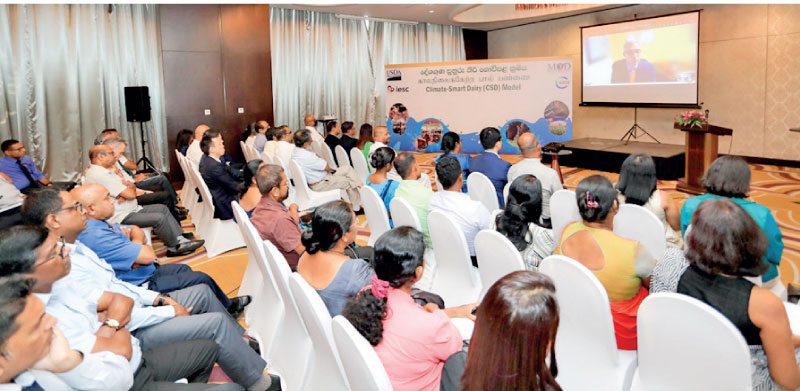
Leaders of both private and public sector at the launch of MOD’s Climate-Smart Dairy model for small-scale dairy farms
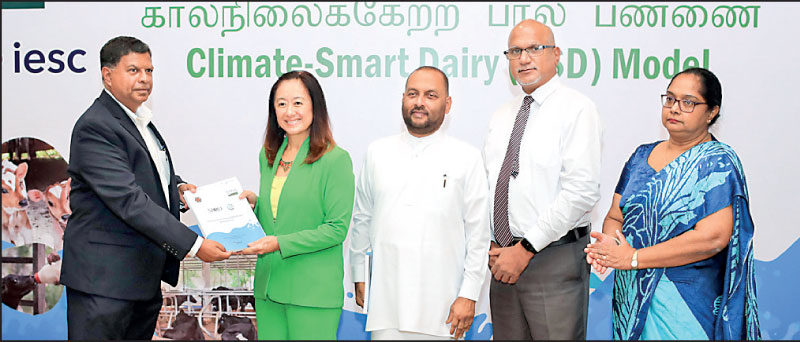
MOD Projector Director Pradeep Liyanamana presenting the Climate-Smart Dairy model handbook to US Ambassador to Sri Lanka Julie Chung
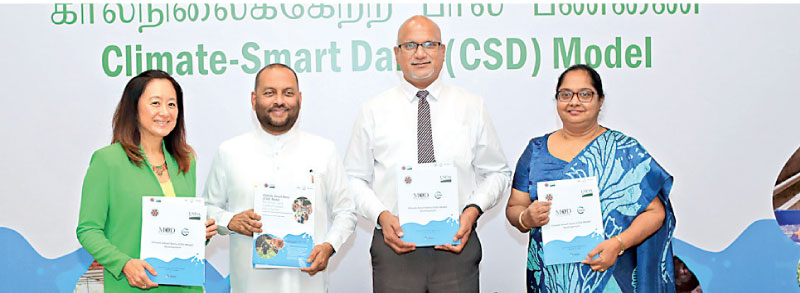
From left : US Ambassador to Sri Lanka Julie Chung, Minister of Agriculture and Plantation Industries Mahinda Amaraweera, Additional Secretary – Livestock Division Dr. Sanjika Perera, Department of Animal Production and Health Director General Dr. Hemali Kothalawala
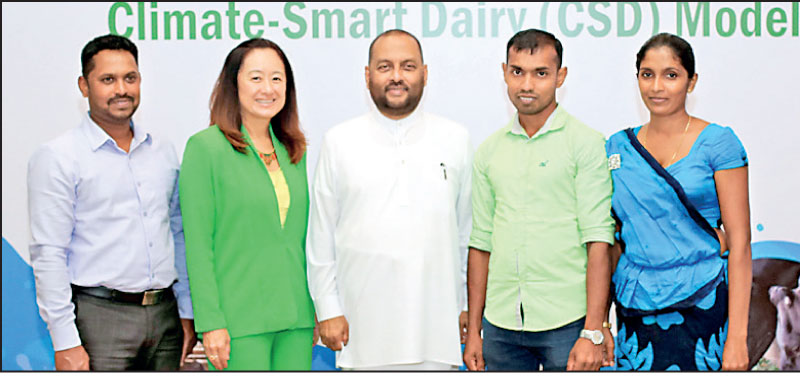
Three of MOD’s dairy entrepreneurs and practitioners of Climate-Smart Dairy posing with the Guest of Honor and Chief Guest at the launch of the Climate-Smart Dairy model
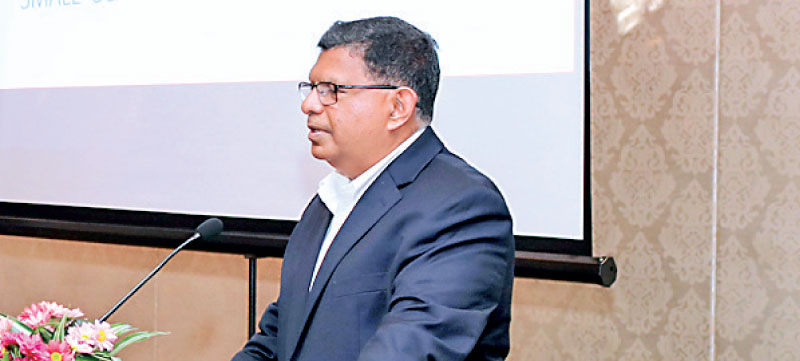
MOD Projector Director Pradeep Liyanamana outlining the importance of Climate-Smart Dairy and its linkages to productivity improvements
|
|
|
Ramyalatha Pushpakumari from Mirisgoniyawa
|
|
The USDA Food for Progress Program
|
Nearing the completion of its seven-year assignment, the U. S. Department of Agriculture’s Food for Progress funded Market-Oriented Dairy Project (MOD) implemented by Improving Economies for Stronger Communities (IESC) has developed the capacities of over 15,000 mid-sized dairy farmers to approach dairy as a business to facilitate increases in farm productivity and milk yields. In addition to empowering farmers and fostering entrepreneurship, MOD’s market-driven approach has enabled public/private collaboration to facilitate investment, strengthened buyer-seller relationships, improved local extension services, and built local trade association capacity to deliver sustainable locally led solutions.
On 29 February, the MOD project hosted the launch of the Climate-Smart Dairy (CSD) model and scorecard highlighting its efforts in improving farm productivity gains and the resulting net reduction of GHG emissions that could be emulated across the sector. MOD’s CSD model and scorecard were developed with the support of a globally renowned expert in dairy Brian Dugdill and the International Union for Conservation of Nature (IUCN) in consultation with local dairy sector stakeholders. The CSD model leverages the experience of MOD’s best dairy management practices designed to improve the productivity of medium-scale dairy farms and the scorecard is the tool to assess their journey towards ‘climate-smartness’ using 32 criteria aligned to the best practices. During the testing of the model using 27 MOD trained farmers in different regions of the country, it was clear that the adoption of best practices in most cases resulted in lower GHG emissions than the national standards whilst a significant number were even lower than global emission standards.
The Chief Guest at the launch, the Minister of Agriculture and Plantation Industries Mahinda Amaraweera commended this unique effort to reduce environmental pollution by the dairy sector and appreciated that “nationally, this initiative would support the action plan recommended by the Food and Agriculture Organisation of the UN (FAO) in 2017 to reduce livestock emissions by boosting efficiency of livestock production and resource use as well as support the country’s National Determined Contributions (NDCs) in the Paris Agreement”.
The donor community present has also already engaged with the project through a consultative discussion hosted by Advisor to the President on Environment, Climate Change, and Green Finance Dr. Ananda Mallawatantri and were supportive of aligning future initiatives to continue CSD efforts in dairy. Ambassador of the United States to Sri Lanka Julie Chung speaking on behalf of the USDA’s Food for Progress Initiative stated, “The MOD Project’s Climate-Smart Dairy (CSD) model is one of the latest in U.S.-funded projects to support sustainable and competitive practices among Sri Lankan farmers. I commend IESC colleague’s proactive approach to this unique initiative that helps Sri Lanka and, in turn, helps our collective efforts to meet global climate goals”.
Climate-Smart journeys of MOD dairy entrepreneurs
The USDA Food for Progress Program helps developing countries and emerging democracies modernise and strengthen their agricultural sectors. Food for Progress has two principal objectives: to improve agricultural productivity and to expand trade of agricultural products. For more information, visit https://www.fas.usda.gov/programs/food-progress.
The Market-Oriented Dairy Project (www.market-oriented-dairy.org) is funded through the USDA Food for Progress Program and implemented by IESC (www.iesc.org). MOD employs a market-driven approach with local actors across the milk value chain to facilitate investment, strengthen buyer-seller relationships, improve local extension services, and build local trade association capacity. IESC is a leading U.S. nonprofit organisation that catalyses private sector growth and creates economic opportunity for people and communities throughout the economically developing world. Since 1964, we have delivered lasting solutions across 139 countries.
For more information about IESC, visit www.iesc.org.